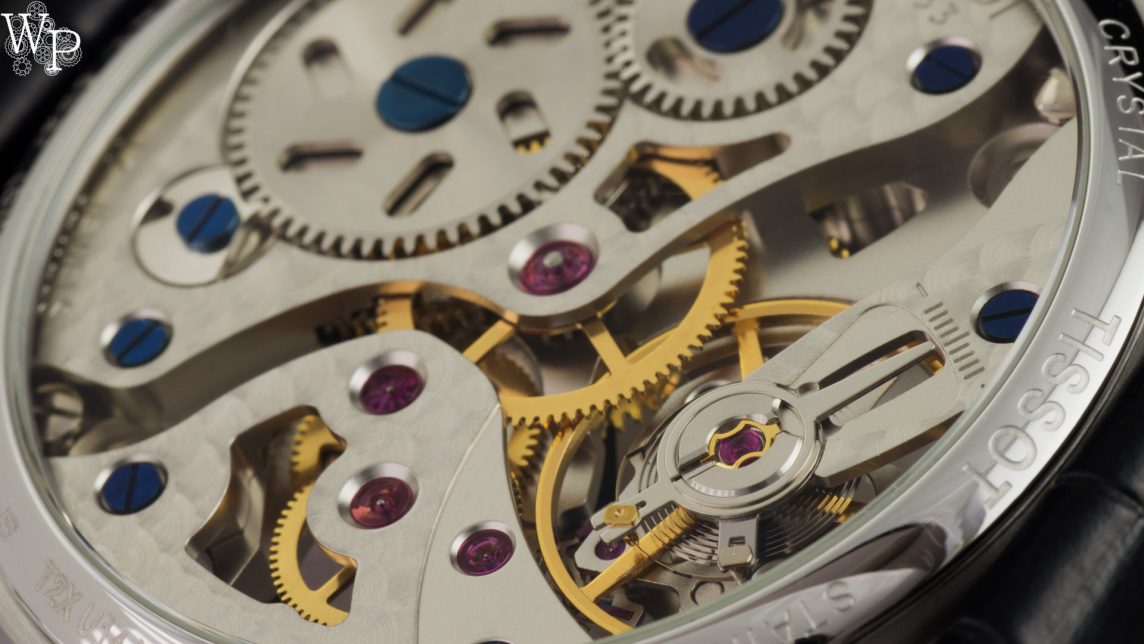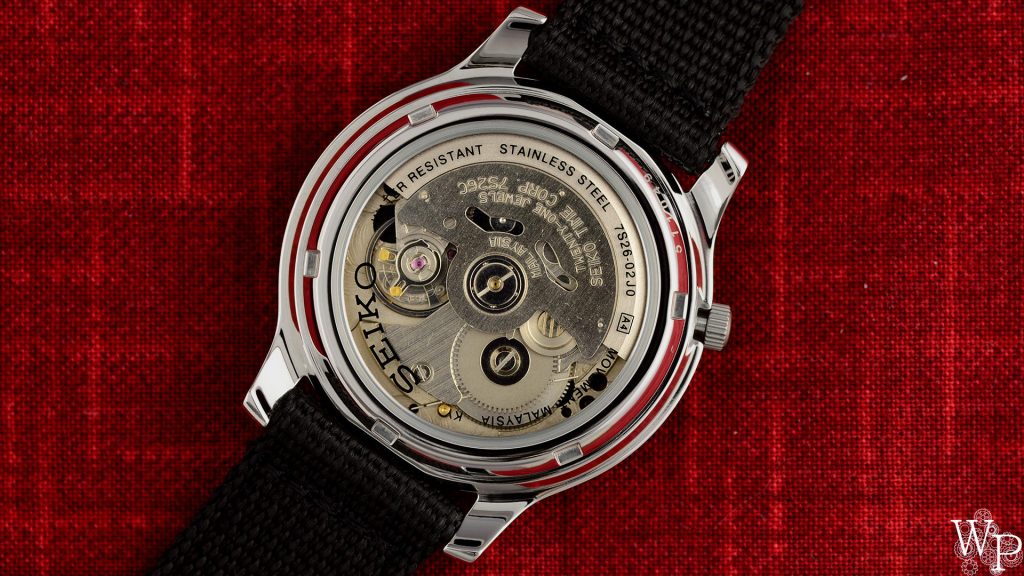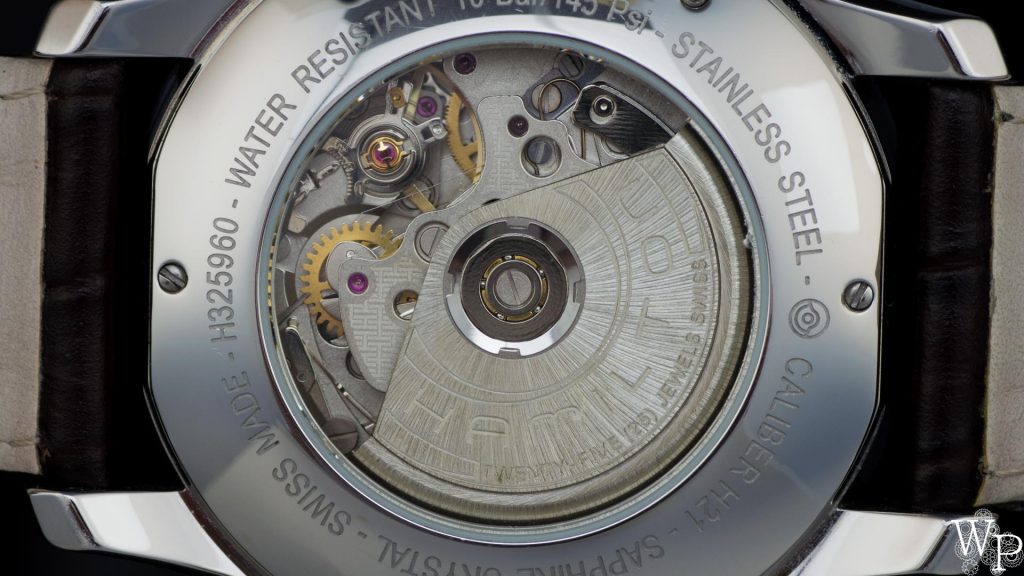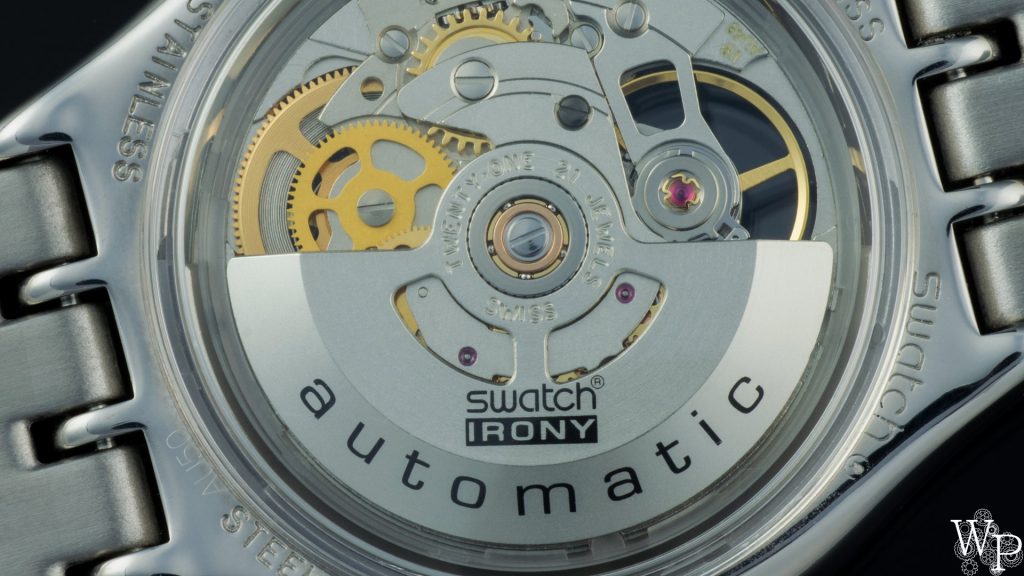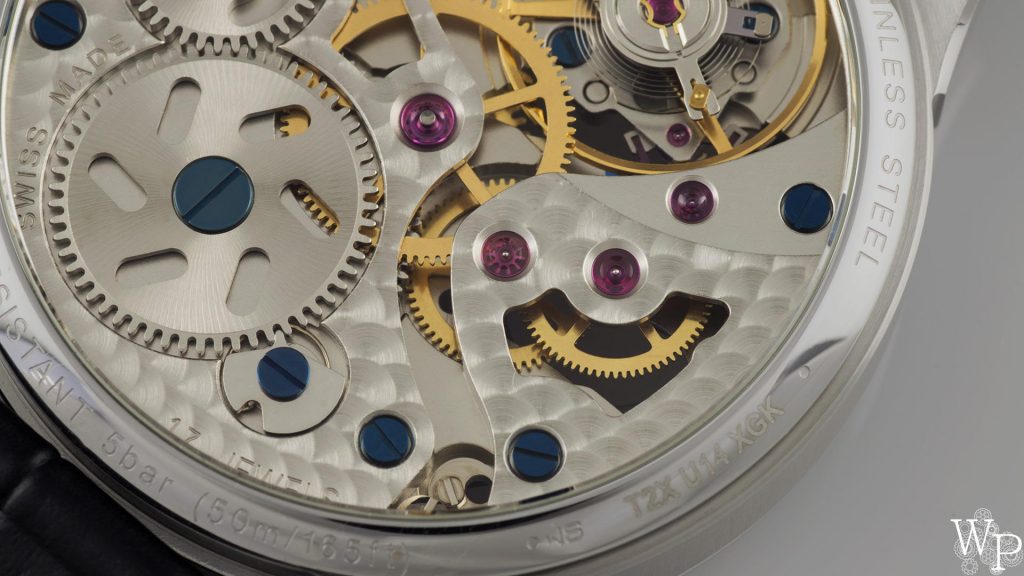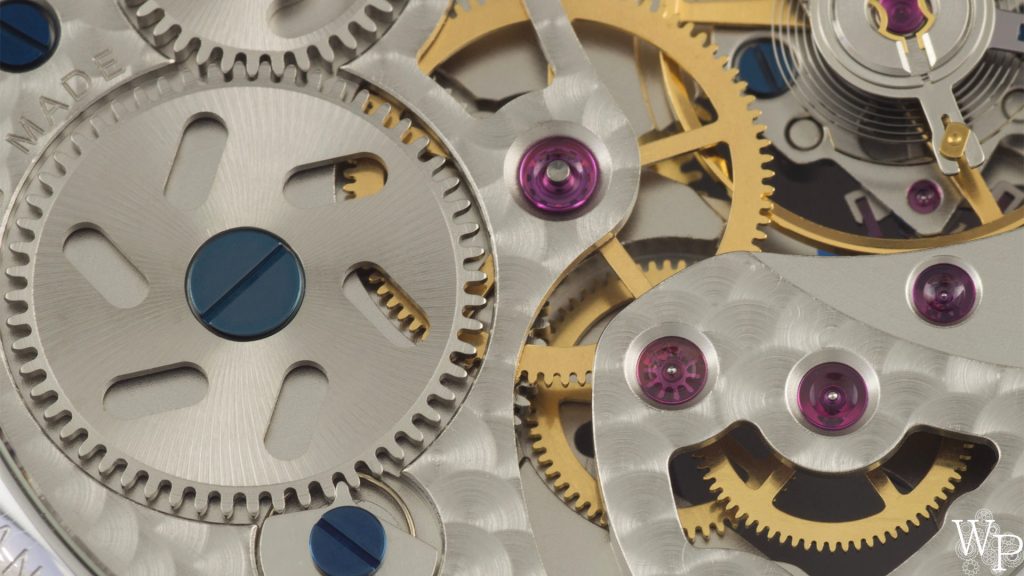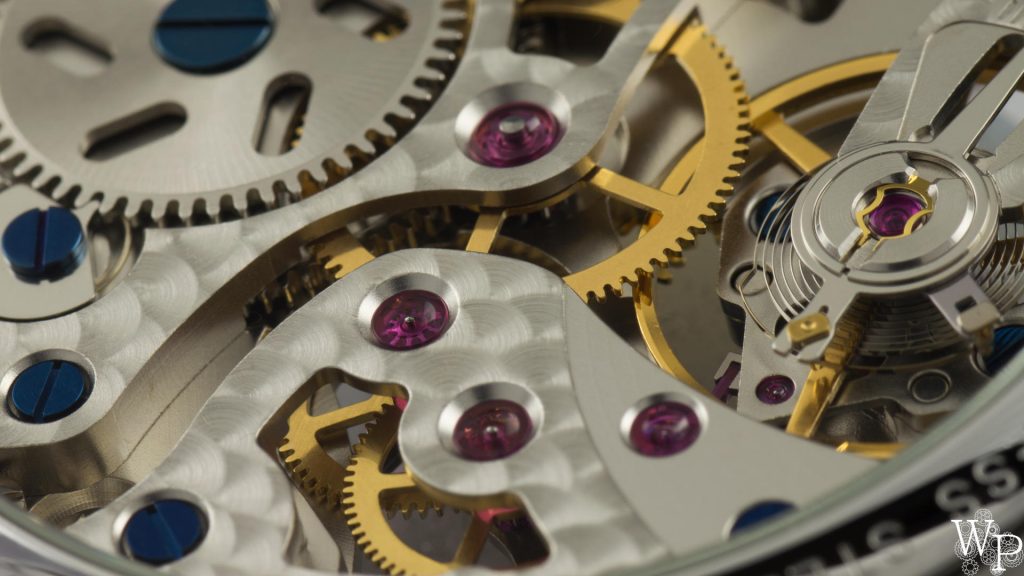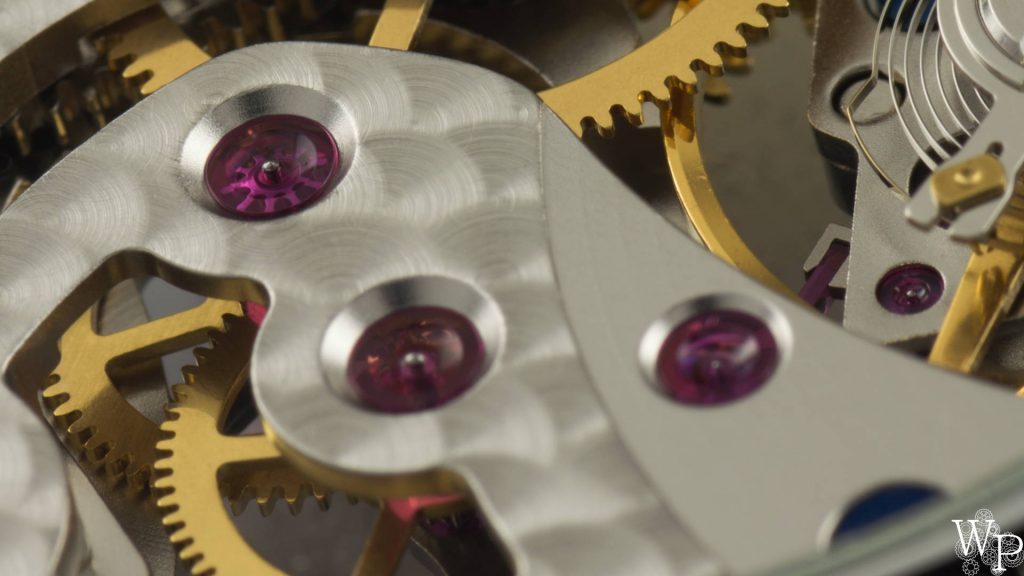A mechanical movement is a prime candidate for macro photography. Because a watch is so thin, it’s easy to overlook how deep a watch movement really is. But, with a macro lens and some time to kill, you can showcase the depth of the modern mechanical movement.
The first watch I ever got with an exposed caseback was a Lucien Piccard automatic. The next, which remains my favourite to this day, was the 2013 Hamilton Jazzmaster Auto Chrono.
But, it was the photo I took of the automatic in the Tissot Visodate Heritage that me really interested in taking photos of movements.
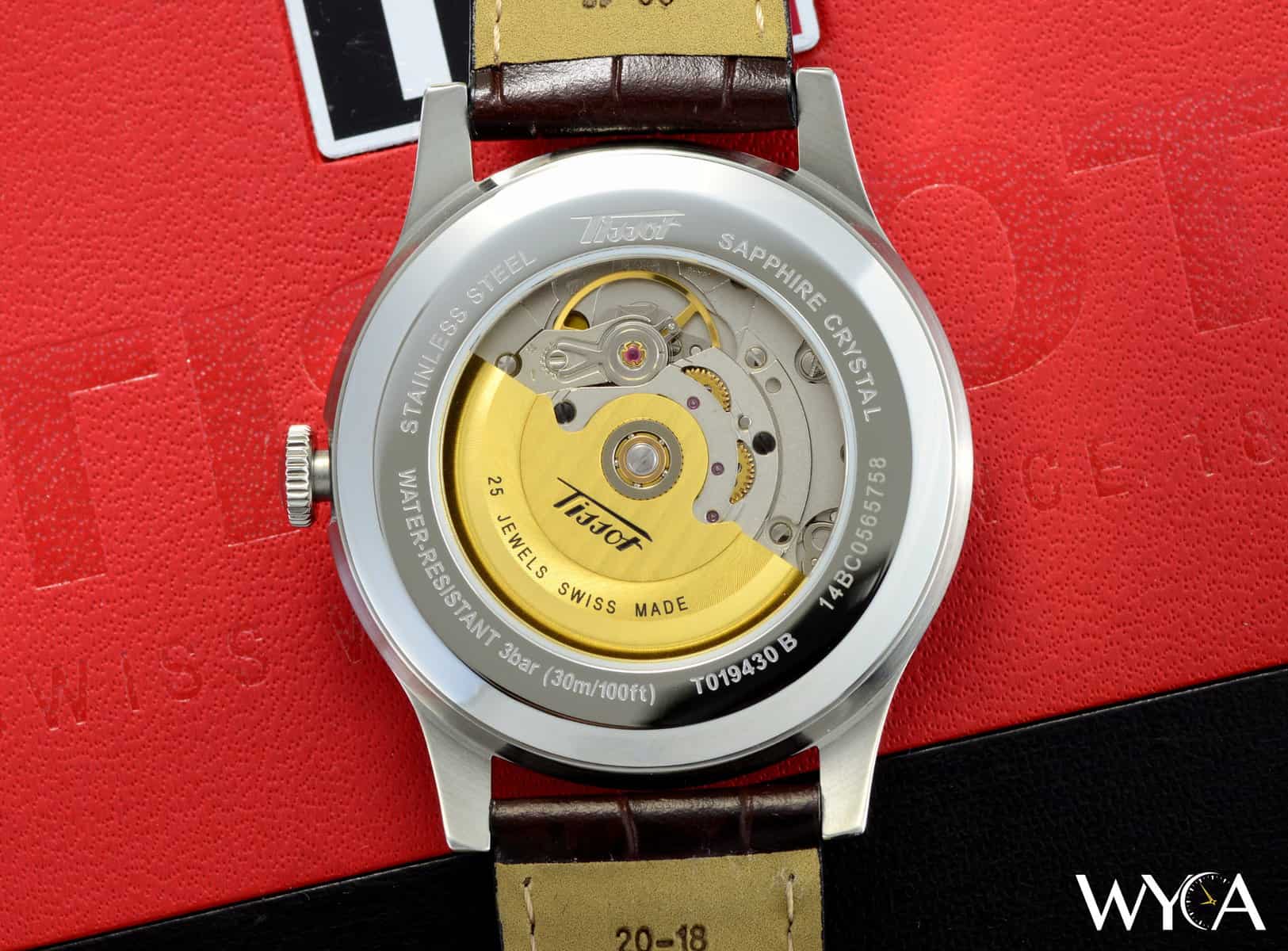
Image taken from my review on WYCA.
It Started With Automatics
The majority of the watches in my collection are automatics, and I’ve taken photos of most of them. When sharing my passion for wristwatches, I’ve noticed that people start to get it when they see an automatic with an exhibition caseback for the first time. A watch is a watch, but a mechanical watch is special. Almost everyone finds interest in it.
Aesthetically, not all automatics are treated equally. Often, a manufacturer will opt not to decorate or texture the movement. This is the case for the exposed 7S26 inside the Seiko 5 SNK series:
Other brands put care into decorating the movement, like the engravings on H-21 automatic inside the Hamilton Jazzmaster Auto Chrono:
But, I prefer when a movement is left to speak for itself, like this ETA 2841 in the Swatch Irony “Body and Soul”:
Mechanicals Are Even More Interesting
Mechanical movements are easier to get fun shots of because they don’t have a big rotor hogging all the real estate.
Look at the ETA 6497-1 mechanical inside the Tissot Chemin Des Tourelles Squelette:
There’s a ton of stuff going on inside this movement! One of my favourite parts of this view is how clearly you can see (and see through) the rubies.
With the rotor out of the way, you can put your camera on an angle and get a better view of what’s inside:
Let’s get nice and close:
Now that’s macro.

